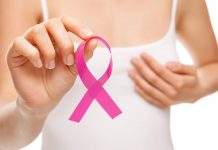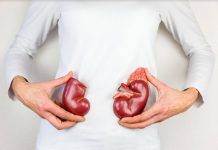Do you have fibrocystic breast condition? Is it true that fibrocystic breast disease increases the risk of breast cancer? Most of you might be in a wrong thought that fibrocystic breast condition can increase your breast cancer risk.
But, this condition of lumpy breast doesn’t increase your risk of breast cancer. So, if you really want to confirm it, try to know more about fibrocystic breast condition that is absolutely non-cancerous.
Fibrocystic breast disease is one of the most common breast conditions that take place in women. If you have fibrocystic breast disease, you will suffer with painful lumpy breasts.
If you are a premenopausal woman, then you must be very careful, since it is believed that this condition of fibrocystic breasts primarily affects women between the ages of 30 and 50 years and usually tends to cause very less problems after they reach menopause.
Estrogen and progesterone plays a vital role!
Menstrual cycle is the most significant factor, which mainly contributes to fibrocystic breast condition. During your normal menstrual cycle, many hormonal changes take place in your body.
Estrogen and progesterone are the two hormones that directly affect your breast tissues and leads to abnormal cell growth.
Apart from these hormones, prolactin, thyroid hormone and insulin also plays vital role in fibrocystic breast condition.
Caffeine and fibrocystic breast disease!
Caffeine is considered as the major contributing factor to both manifestations and scarring changes associated with fibrocystic breast condition. But, many researches show that even restriction of caffeine intake cannot control the development of fibrocystic disease.
At the same time, it is believed that consuming more amounts of caffeine doesn’t increase the risk of breast cancer.
However, it is usually suggested not to take excess amount of caffeine for many reasons. Over intake of caffeine is quite harmful for your health. It can increase your obesity risk and its associated abnormal health conditions. Try to realize that coffee is not the only source of caffeine. Even tea, chocolate and certain other soft drinks are also considered as rich sources of caffeine.
There is no specific treatment for fibrocystic breast changes!
There is no specific treatment available for fibrocystic breast changes. But, some of the simple measures such as wearing proper supporting bra can help you to provide better relief for the pain and discomfort associated with fibrocystic changes.
Limiting or reducing the intake of caffeine and taking well balanced diet also helps you to get better relief from the symptoms of fibrocystic breast changes.
So, whenever you feel any sort of persistent breast pain or lump in your breast, immediately consult your general physician and get appropriate treatment at right time.















